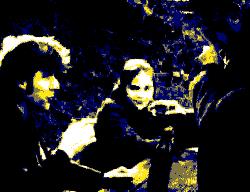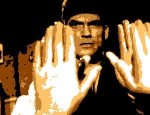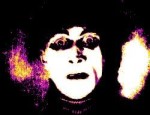Film Review

Rather than play things safe and opt for the kind of film that someone might actually want to pay to watch, Piccoli fashions himself as the grand auteur and does just about everything a first-time filmmaker can do to alienate his audience. Virtually plotless and wallowing in its clumsy approximation to cinéma vérité, Alors voilà, looks like a poor man's attempt at imitating a Maurice Pialat or Jean-Luc Godard film. It hardly looks as if the film was scripted at all - in fact you could easily believe that Piccoli and his cast improvised the whole thing in a matter of hours, without even having so much as discussed the project beforehand. It is to Piccoli's credit that he should attempt something so unusual for his first feature but the film just reeks of amateurishness and is as lacking in charm as it is in real artistry. No doubt encouraged by the sycophants, Piccoli persevered in his new art and followed this with the marginally better La Plage noire (2001).
© James Travers 2006
The above content is owned by frenchfilms.org and must not be copied.
Film Synopsis
Constantin is a patriarchal grandfather who insists that his three sons bring their families to his home for a meal each week. Inevitably, this get-together proves to be a complete nightmare for everyone involved, but the ritual has to be gone through each and every week without fail. Even though the three sons do not get on well together, they agree to pool their resources to buy a lorry. As they do so, the seemingly benign Constantin decides to indoctrinate his grandchildren in his shady exploits...© James Travers
The above content is owned by frenchfilms.org and must not be copied.
Similar Films
Here are some other films you may enjoy watching:- La Tête en friche (2010)
- Swing (2002)
- Petite chérie (2000)
- La Vache et le président (2000)
- Drôle de Félix (2000)
Other related links:
Film Credits
- Director: Michel Piccoli
- Script: Thomas Cheysson, Michel Piccoli
- Cinematographer: Laurent Machuel
- Music: Arno
- Cast: Roland Amstutz (René), Arno (Arno), Mickaël Bessière (Pierrot), Dominique Blanc (Rose), Bernard Bloch (Marcel), Lauris Coucaud (Jeannot), Pascal Elso (Henri), Nathalie Eno (Janine), Maurice Garrel (Constantin), Dyna Gauzy (Maria), Michèle Gleizer (Suzie), Audrey Guillaume (Mireille), Roger Jendly (Loulou), Elisabeth Margoni (Vivianne), Gérald Mauroy (Le vigile), Chantal Neuwirth (La bouchère), Jean-Michel Portal (Luc), Agatha Rouland (La fiancée)
- Country: France / Germany
- Language: French
- Support: Color
- Runtime: 97 min
- Aka: So There
The very best fantasy films in French cinema

The very best of German cinema

The best French Films of the 1910s
